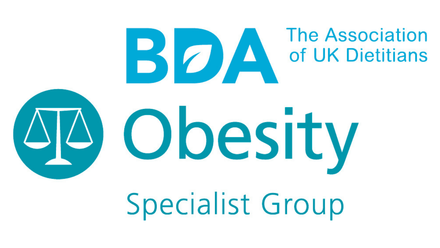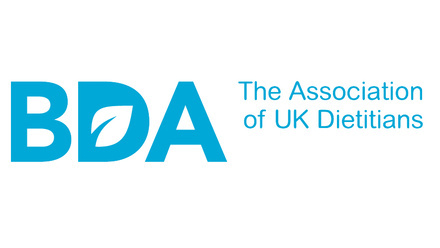by Suzanne Hodgson, Weight Management Dietitian.
Patients have reported that the collaboration between dietetics, cognitive behavioural therapy (CBT) and physiotherapy was beneficial in preparing them for weight-loss surgery.
The incidence of obesity and associated comorbidities continues to increase. In 2015, 58% of women and 68% of men were overweight or obese. Obesity prevalence increased from 15% in 1993 to 27% in 2015 (see reference 1 below).
Bariatric surgery is an essential treatment option for patients with a Body Mass Index (BMI) of 40kg/m² or more, or between 35kg/m² and 40kg/m² with one or more co-morbidity. The NICE (2014) Clinical Guidance on Obesity (CG189) includes tier 3 services as an integral part of the bariatric surgery pathway (2).
Changes Weight Management Overview
Changes Weight Management is a tier 3 bariatric multidisciplinary team and comprises specialist dietitians, CBT therapists, a specialist physiotherapist, lifestyle advisors, a GP with specialist interest in obesity and an endocrinologist. The team delivers its service in Knowsley, Merseyside, where currently 69.1% of adults are either overweight or obese compared to 61.3% in England (3).
Patients access a 6-12 month programme in preparation for bariatric surgery. The programme includes:
- assessment with a specialist dietitian
- 10-week group healthy-eating education programme
- monthly follow-up with the dietitian
- assessment and (where appropriate) treatment with a CBT therapist
- medical assessment with a GP with special interest in obesity (GPSi)
- assessment with a specialist physiotherapist
- bariatric education session
- discussion at MDT panel (successful patients are then referred for a surgical assessment at tier 4).
Background To The Project
The team started a two-year project from 2015 to June 2017, to find out how clinically effective the tier 3 service is in preparing patients for bariatric surgery and how satisfied patients were that they had been provided with enough information in the lead up to bariatric surgery.
The team also wanted to find out if the lifestyle changes that patients made pre and post weight loss surgery impacted on the health behaviours of their immediate family members.
Aims Of The Project
1. To explore patient satisfaction with the tier 3 programme.
2. To evaluate changes to patients’ BMI, dietary intake, dietary behaviour and physical activity pre and postsurgery.
3. To evaluate changes to self-reported wellbeing pre and post bariatric surgery.
4. To explore whether patients felt that their family members had also changed their lifestyle behaviours The project was carried out by staff members in the Changes Weight Management service – myself (Suzanne Hodgson, Dietitian) and Ruth Lawrence (CBT therapist).
Methods
■ Satisfaction questionnaire pre and post-surgery.
■ Data collected on BMI.
■ Data collected using a food frequency questionnaire (FFQ) pre and post-surgery.
■ Data collected on wellbeing pre and post-surgery using the short Warwick-Edinburgh Mental Wellbeing Scale (SWEMWBS).
■ Patients were asked their opinions on whether they felt that their family members had also changed their eating and activity behaviours.
Results
78% (n = 35) patients were contacted after completing the tier 3 programme to complete a service evaluation questionnaire via a phone call.
Survey question: Was there any support you would have liked that wasn’t offered?
- 86% (n = 31) of patients stated ‘no’.
- 14% (n = 4) stated ‘yes’. Of those that stated ‘yes’, the comments were to meet more people who have had surgery, to attend a cookery course and to attend appointments right up until the date for surgery.
Survey question: How useful were your appointments with each health professional?
Overall, patient feedback was positive for all elements of the multidisciplinary team and showed the benefits of combining support for physical health with mental health.
Survey question: Overall, how do you rate the service?
Overall, 77% (n = 26) rated the service as excellent and 100% would recommend the service to family and friends.
Survey question: What was the most useful part of the service?
- “Learning to have breakfast, the portion plate, the dietitian.”
- “Found all aspects of the programme very helpful. You can’t have one without the other, everything played a part.”
- “Mindful eating with CBT.”
- “CBT – makes you think about food and relationships differently.”
- “I found the appointment with the GP very useful. She referred me for a sleep apnoea test which came back positive and also changed my diabetes medicine which helped with weight loss.”
From initial assessment to referral for surgery, average BMI reduced. There was a significant difference between mental wellbeing and dietary habits from assessment to referral, showing the benefit of treatment from the Changes Weight Management Service over a 6-12 month period whilst on the bariatric pathway.
BMI increase during the tier 3 programme
Six patients included in the study showed increased BMI pre-referral. However, for those patients who increased their BMI, their mental wellbeing score and food frequency scores improved. This demonstrates that although BMI was not reduced, improvements were made to the quality of their diet and eating behaviours. (NB. the bariatric patient group are particularly challenged by complex medical conditions which often require intensive pharmacological intervention which can hinder weight loss.)
There was a significant difference in BMI, mental wellbeing and dietary habits from assessment to 6-12 months post surgery. This shows the impact of the weight management team along with the added impact of the surgery on all factors assessed compared to Table 1. This shows that although the weight management team advice had an impact on reducing BMI, surgery had the greatest impact on reducing BMI for all patients from assessment to 6-12 months post-surgery.
Referrals for surgery
45 patients were referred for surgery and 42 had surgery. Three patients on follow-up did not have bariatric surgery due to health conditions. 86% (n = 36) of patients had a gastric bypass, 11% (n = 5) had a sleeve gastrectomy and 3% (n = 1) had a duodenal switch.
Post-surgery satisfaction questionnaire
- 83% (n = 35) were contacted via the phone post-surgery (6-12 months post-surgery).
- 100% (n = 35) were satisfied that they were provided with enough information pre-surgery.
What did patients find most helpful in preparation?
- Meeting post-op patients
- Portion control
- Mindfulness
- Dealing with psychological issues
- Learning surgery isn’t a magic wand but a tool
- “I was told about foods I wouldn’t be able to tolerate”
- Learning to use a smaller plate
- “I wanted to have surgery straight away but I understand now why it’s best to go through the programme first”.
Patients were asked if they felt they had influenced their family to make healthier food choices during the pre and post-surgical programmes:
66% (n = 23) of patients reported that they had influenced other members of their family to make healthier food choices.
Patients were asked if they felt they had increased their activity and if they had influenced their family to increase their activity during the pre and post-surgery programmes:
- 77% (n = 27) of patients reported to have increased their activity post-surgery.
- 46% (n = 16) reported to have influenced other family members to increase their activity.
Patients were asked what advice they would give to other patients in the pathway:
- “I understand now why we go through the programme and the benefits of making changes pre-surgery.”
- “Don’t go into it lightly, do your research. Really pleased I’ve done it.”
- “Go for it but listen to what they (professionals) say.”
- “It’s hard work taking the bariatric pathway – you have to be mentally and physically prepared.”
- “Take all the support that is offered. I wanted a quick fix but the service trains you up and prepares you.”
Summary
Patients found that an MDT approach was beneficial in preparing them for weight-loss surgery. The project highlighted significant improvements to mental wellbeing and dietary intake following accessing a tier 3 weight-management programme and the majority of patients reporting a beneficial impact on their families’ diet and activity levels. This project highlights the benefits of an MDT approach when preparing patients for weight loss surgery
Acknowledgement
The writer would like to thank Olivia Done, who assisted with analysing the data as part of her C placement at Chester University.
References
1. National Statistics. (2017) Statistics on Obesity, Physical activity and Diet, England 2017
2. NICE (2014) Obesity: Identification, assessment and management. NICE
3. Public Health England. Public Health Profiles. 2015/2016. Available from https://fingertips.phe.org.uk/ profile/health-profiles. Accessed on 29/12/2017.




